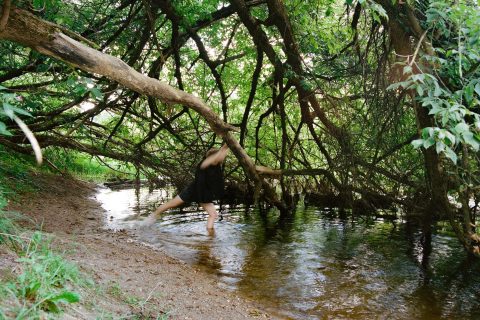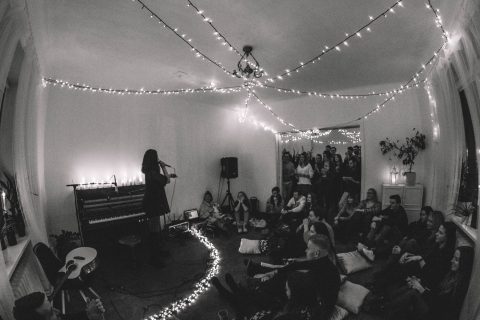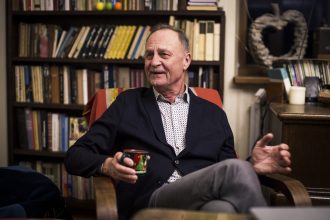“Congratulations, Birutė! Can we come visit you?”
“At Aura?”
“No, no, at your home on Lelijų Street.”
“But I almost live in Aura…”
It took more than one phone call for Svetlana Batura, who is familiar with the specifics of dance, and therefore with the specifics of photographing Aura, and me to finally make an appointment with this year’s winner of the National Prize for Culture and Art, the founder of the Aura Dance Theatre, and choreographer Birutė Letukaitė.
She wasn’t pretending. She spends little time in her apartment on the ground floor of the interwar period building in Žaliakalnis, since all her days are devoted to rehearsals and endless errands, and evenings to theatre plays and cultural events. “I go wherever I’m invited, although there are too many events and not enough good ones,” Birutė answers fairly when asked if she doesn’t get tired of participating in every event (you meet her in Kaunas pretty often). Many could envy her sense of duty, stubbornness, creative flair, and charm. In fact, it is only now, in an informal and non-working environment, as Birutė stands in her kitchen and smiles, that I realize that she resembles Catherine Deneuve. Maybe it is a look that combines self-confidence, experience, assurance, and also a youthful ability to admire when the object is worthy of it.
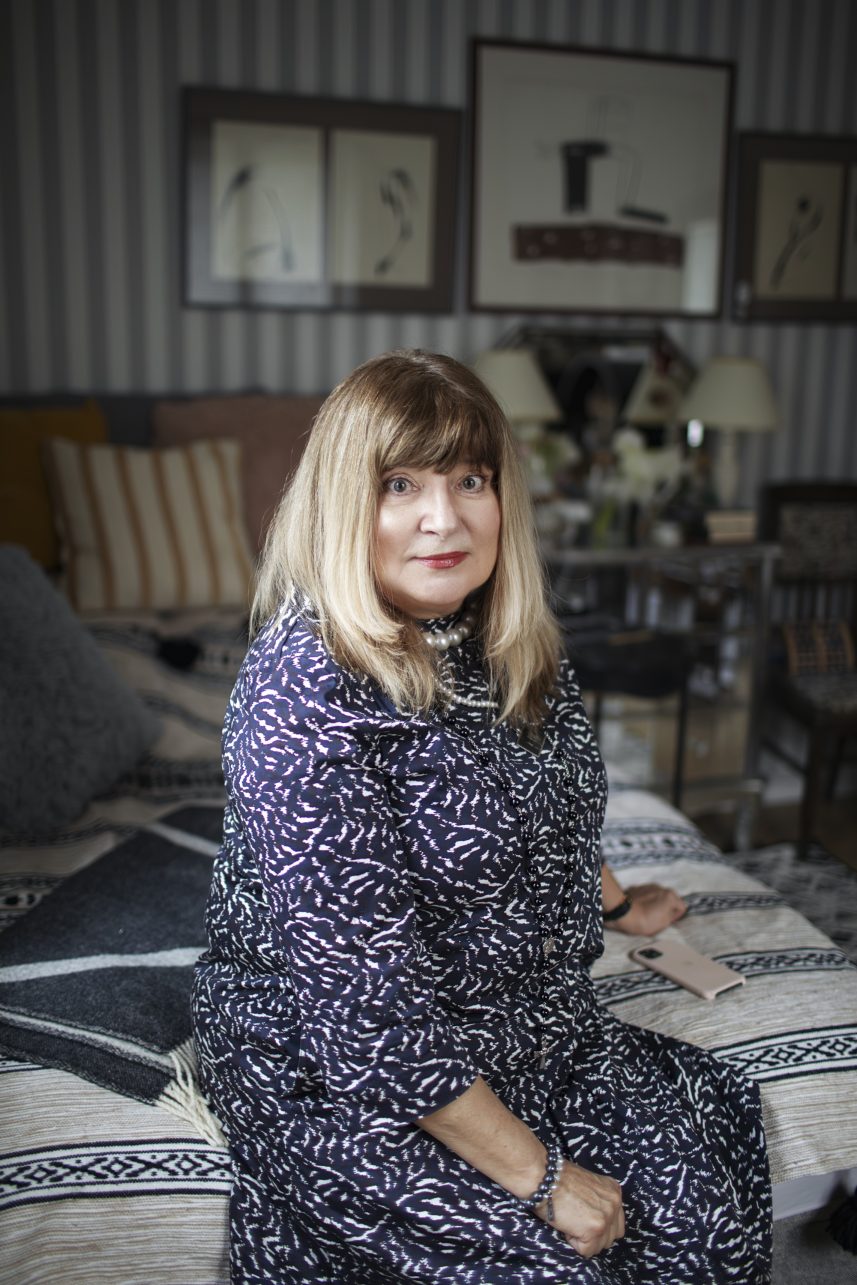
“I have lived in Žaliakalnis all my life, only before it was on Molėtų St. 8 and when I was in primary school, we lived on Vaisių Street (fruit), which some people refer to as “fruit punch”. I dreamed of busses passing through Vaisių Street, I wanted the street to be large,” Birutė lists her places of residence. Her current home, where her daughter Gabija, who is now traveling the world, and her son Ugnius, who has just returned as a visitor, grew up, she inherited from her mother. There was also a brief episode in a co-op. Although Birutė lives in a neighborhood full of stories (Gabrielė Gudaitytė, a resident of nearby Žemuogių Street, published a book about it last year, and Birutė’s neighbor Aistė Ramūnaitė was featured in our magazine last October), she says she doesn’t really know her neighbors.
The apartment’s front door and doorpost are bright blue and once inside, the eyes are dazzled by an explosion of colors, silhouettes (mostly of dancers), flowers, shells, candles, glass, paintings, postcards, event passes, perfumes, textures, and cultures. Yes, this is undoubtedly Birutė Letukaitė’s home.
“How could I throw it away? It’s very precious and beautiful. I look at a bouquet and remember the performance after which I received it – every movement,” she responds even before the question of whether she dries all the flowers she receives is fully asked. On the wall hangs a framed imprint of her tunic, created by Jūratė Rekevičiūtė. Interestingly, the artist had wanted a dress, but the choreographer refused, saying she would offer a dancer’s tunic instead. “Just like I wanted to bring you to the theater, so it had to be with that tunic.”
“This is a house on Vaisių Street, here’s the one I brought from Turkey, and this one is from the Soviet times when we went to Dresden. I popped in, saw the Degas’ ballerinas, and oh my God!” our hostess comments on the paintings and reproductions densely hung on the orange walls of the corridor – she even shows a piece sculpted by her daughter at school. Even the curtains in the living room were brought back from Duisburg after the restoration of independence, from a dance festival, or rather an antique market. “Oh my God!” Svetlana gasped after seeing a photo she had taken, which was used to make a postcard which Birutė also decided to keep. She also kept the shells she had collected in the Seychelles, which she had to bring back in her son’s guitar case without him knowing, and the umbrella she had bought in Australia with the Degas’ ballerinas on it, which she still hasn’t lost.
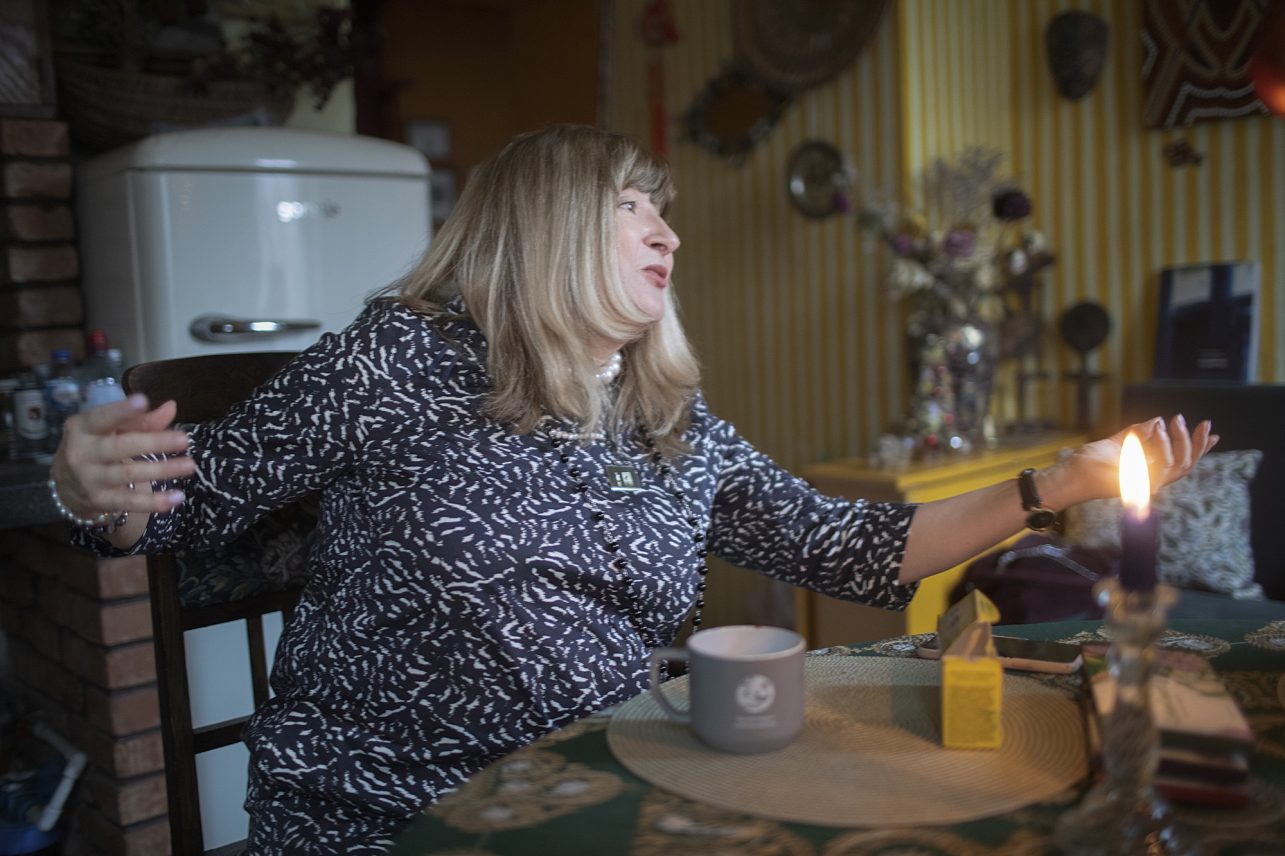
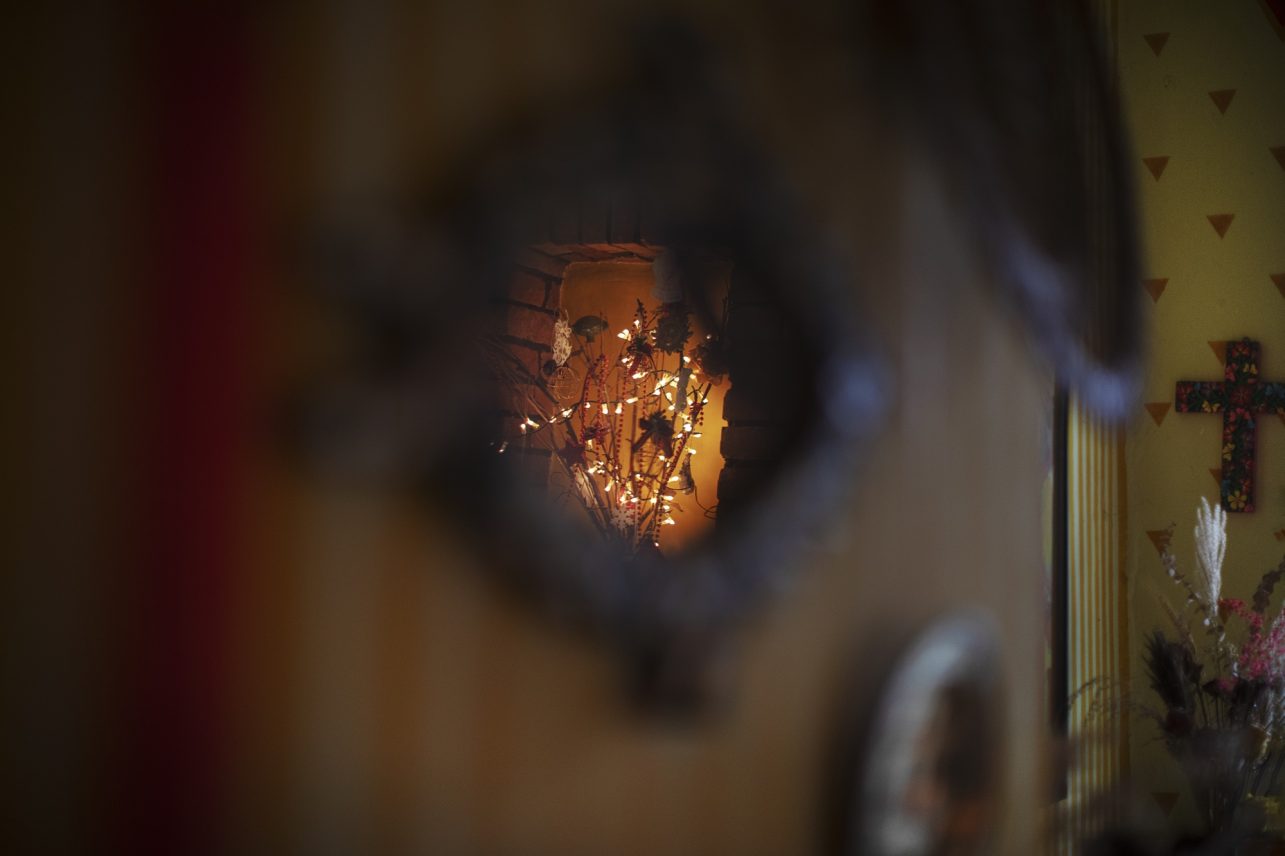
“On Pinterest until dawn” Birutė guffawed remembering how she was preparing to redesign her bedroom, wondering what should be changed. The bright corner room is her own domain adorned with Aldona Gustas’ prints. The choreographer has a creative relationship with this artist – Aura’s performance (M)eilės (m)eilėse was inspired by Aldona Gustas. It is in the bedroom where Birutė “takes her position” when she returns after performances, rehearsals, or events. Then the work on Facebook follows – everything needs to be put together and posted and the photos have to be cleaned up, cropped, and brightened beforehand. “I don’t notice that it’s already one, two, three, four a.m…” But the most important thing is to get at least six hours of sleep.
Sitting in the kitchen, waiting for tea, we look out of the window at the garden with its famous magnolia. Famous because Birutė likes to share the photos of its blossoms on Facebook. It turns out that for many years there was a jungle in front of the house, but the garden was planned, and the magnolia and other plants were planted by Birutė’s old acquaintances, a family whose daughters used to attend the Aura studio. It is impossible to measure the impact that a woman’s passion for establishing a studio, teaching dance to others, and raising a new generation (and then many more), has on Lithuania. And not only on dance, the concept of which in the mind of the average cultural event attendee has been shaped by Aura, but also on the broader cultural life, which, at least in Kaunas, can hardly be imagined without it. If it’s not the international Aura company dancing at an important opening, it’s a company formed by a choreographer who danced there. Aura’s students, who did not become professional dancers, working in various fields, still took something away from Birutė that helps them to stay in shape.
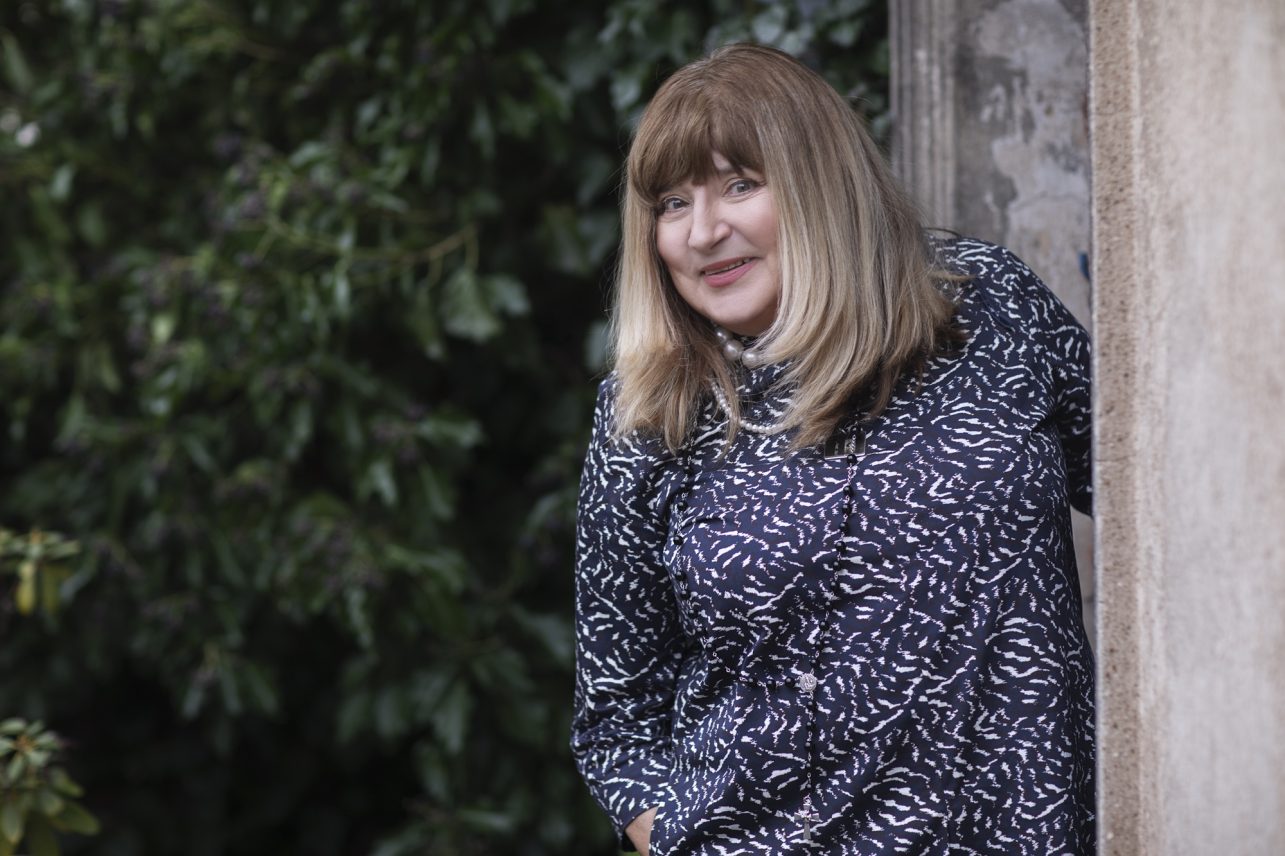
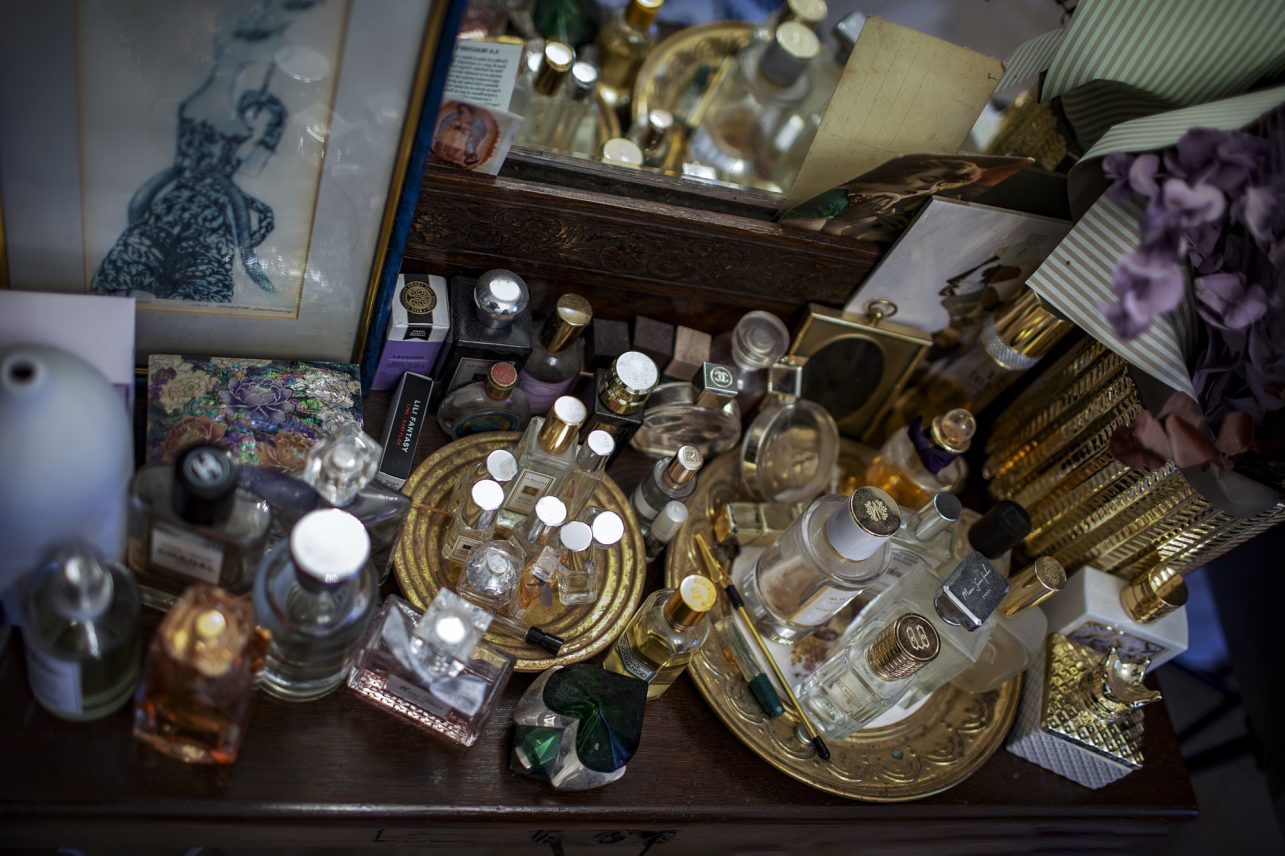
“I must have burnt out,” says Birutė when asked if she has gotten used to the new title of the National Prize winner. Of course, she has been nominated for this award – the highest in Lithuania – four times. “I have written on this topic before – what’s wrong, what else do you want? I don’t know what else to do, and I did everything for the first time. As Vita Mozūraitė once wrote, Letukaitė is a trailblazer.” Indeed, there is no further to go, but there is also no chance of stopping or, God forbid, retiring.
Birutė continued the renovations she started a couple of decades ago only when the pandemic struck, when she had just enough time to finish two rooms and a bathroom, although she worries that there is still a lot to do. After the renovation, many empty perfume bottles and a forest of dried flowers went to handicrafts. But there are still plenty of flowers – and they are an eye-catcher – because there are lots of performances, lots of occasions for people to gift them. Birutė’s life is full, with the 35th Aura Festival coming up this year, and premieres and tours before that. One very long working day. A special work dedicated to the year of Čiurlionis awaits. The troupe will interpret his work The Sea together with the Kaunas City Symphony Orchestra, only they will speak about the sea and the current state of the world from the perspective of a modern person. “When Čiurlionis wrote his wonderful music, the situation was very different. The sea was also wonderful, but now? How much has happened in the world during this time? What a contrast between the beauty of Čiurlionis and our lives now!” the choreographer outlines the future performance, which is based on a production that has already been shown at one festival.
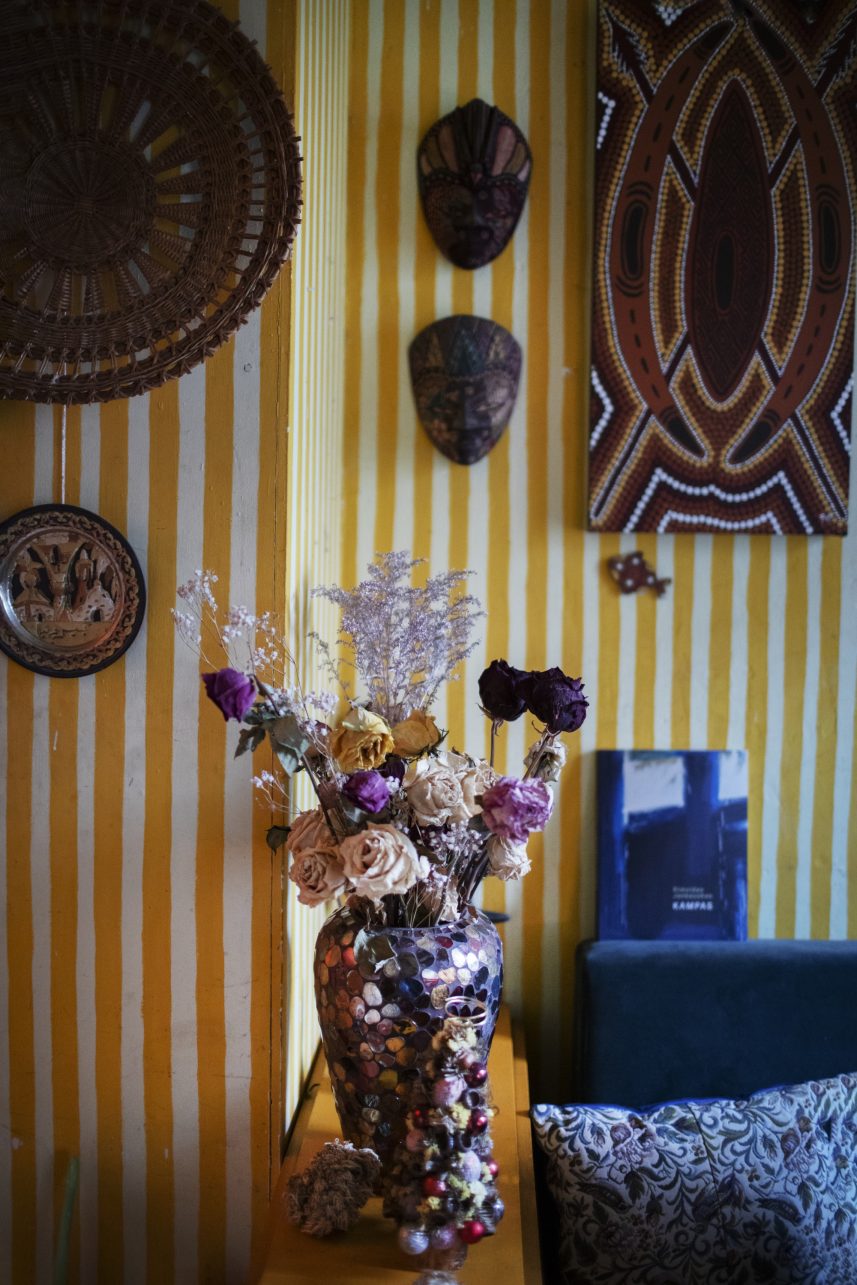
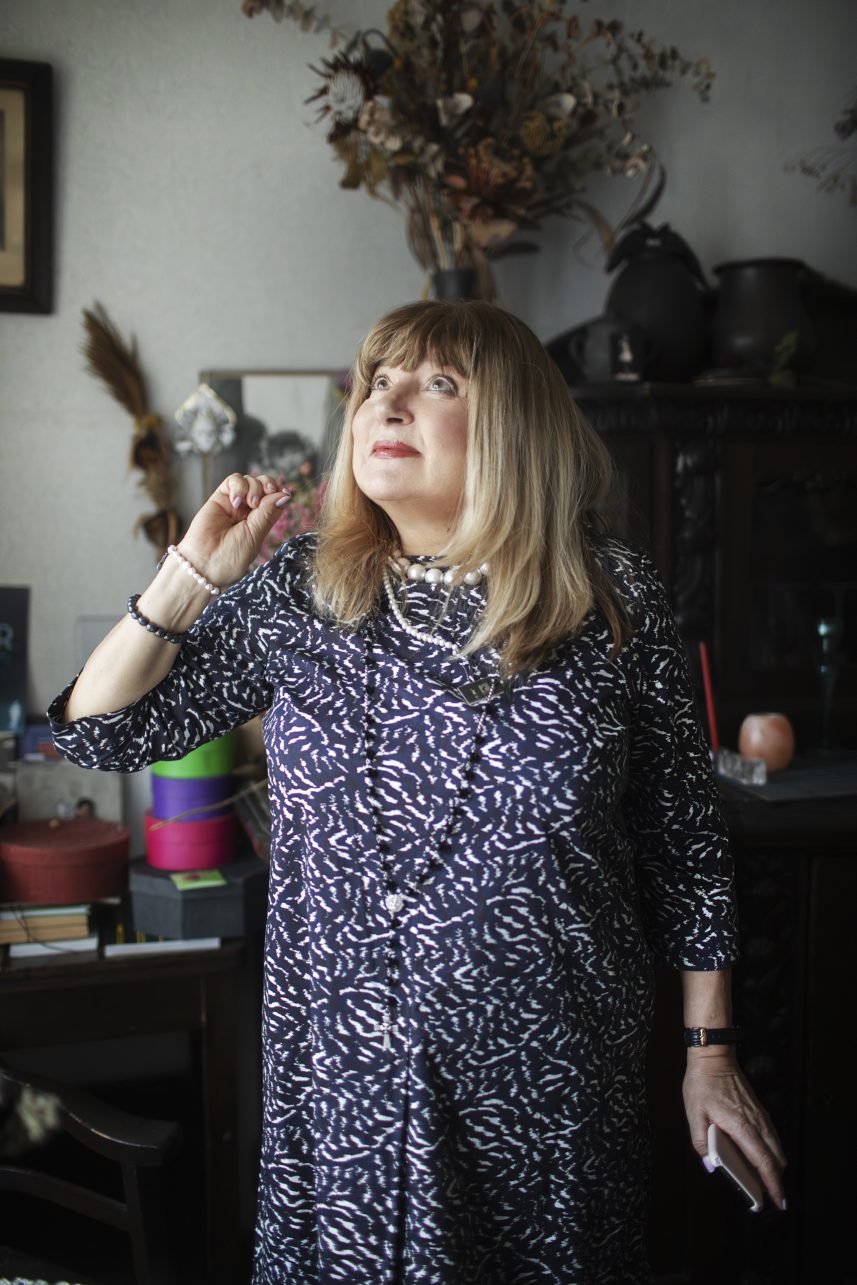
Could you believe that Birutė participated in the events marking Čiurlionis’ centenary? It’s time to flip the calendar back fifty years and uncover what led her to dedicate her life to dance. The answer surprises me: “In the sixth grade when I saw the film The Story of My Folly, I decided to become an actress.” First, it was her friend Dalia Storyk, who also attended Kira Daujotaitė’s expressive dance troupe Sonata, who enrolled in acting school. Despite telling Birutė that she was going to study library science! “I nearly fell down the stairs.” Birutė and Dalia’s sister Nijolė refused to give up – they even traveled to Panevėžys to audition for Miltinis’ class.
“Acting school and the conservatory felt like another planet to me. Those who studied there seemed like they came from a different world, and my greatest wish was to enter that world and live that life,” Birutė remembers her dream. Eventually, when another admissions period approached, she researched which programs had the fewest applications and enrolled in library science. Then there was the attempt to pursue a career as a model, and as soon as she was noticed and had to move to Vilnius, Birutė realized that her place was where Sonata was. After finishing her studies, she got a job in the Arts and Music Department of the current Ąžuolynas Library, located in the modernist building on K. Donelaičio Street 8. “Those were the days of Giedrius Kuprevičius, and his events drew serious crowds.”
Colleagues from the department prepared a program for the 100th anniversary of Čiurlionis and invited Sonata to perform a dance based on Zodiac. “And we traveled all over Lithuania, they read literary interludes, and we danced, and for me, it was the pinnacle – being on stage!” Their teacher used to tell them, “Girls, you must demand that dance be recognized as equal to theater and other arts.” Birutė laughs, admitting she didn’t fully understand what they were supposed to ask for or why, but perhaps it was then that the seed of Aura was planted. Later, during her trip to Dresden, she saw just how far the world had progressed in modern dance during occupation. “I thought to myself, something needs to be done; we need to catch up.”
Birutė’s motivation for separating from Sonata was also that she wanted more than she was being asked to do. After ten years in the studio, she had already seen its reality, its downsides, its limits. “Nothing else mattered to me.” Creating something that did not exist, working after work, when not all the relatives were really supportive, was more important than the stereotypes that prevailed in the society of the 1980s. “It seemed like if won’t go there it will collapse.”
Birutė’s constantly ringing phone that beckons her to Aura and reminds her of the agreements, shows that even today the rest is not that important. “It feels like I’m living the same day over and over, just at a different speed. I recently realized that I struggle to keep up with my young dancers but not because they are moving too fast.” A few more of Svetlana’s thoughtful shots, a few more stories, and that’s it, we’ll have to see the winner off to the next interview.
P. S. Want the recipe for the pancakes Birutė used to make for Ugnius before school? All you need is flour, water… And, after baking, sour cream, and apple sauce made from Birutė’s garden apples, even the smallest ones, which also deserve to be used instead of thrown away. “It was emotional for me, as if they were alive… I’d spend nights slicing those apples. You pile them into a pot, add sugar, and cook them. I don’t make those pancakes anymore because I don’t eat breakfast.”

